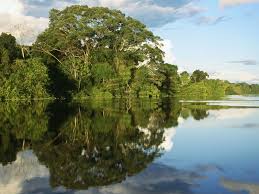Download Backgrounds Biography
Tokyo s one of the 47 prefectures of Japan. Tokyo is the capital of Japan, the center of the Greater Tokyo Area, and the largest metropolitan area of the world. It is the seat of the Japanese government and the Imperial Palace, and the home of the Japanese Imperial Family. Tokyo is in the Kantō region on the southeastern side of the main island Honshu and includes the Izu Islands and Ogasawara Islands.[6] Tokyo Metropolis was formed in 1943 from the merger of the former Tokyo Prefecture (東京府 Tōkyō-fu?) and the city of Tokyo Tōkyō-shi.
The Tokyo Metropolitan government administers the 23 special wards of Tokyo (each governed as a city), which cover the area that was the city of Tokyo, as well as 39 municipalities in the western part of the prefecture and the two outlying island chains. The population of the special wards is over 8 million people, with the total population of the prefecture exceeding 13 million. The prefecture is part of the world's most populous metropolitan area with upwards of 35 million people and the world's largest urban agglomeration economy with a GDP of US$1.479 trillion at purchasing power parity in 2008, ahead of New York City metropolitan area, which ranks second on the list. The city hosts 47 of the Fortune Global 500 companies, the highest number of any city.
Tokyo has been described as one of the three "command centers" for the world economy, along with New York City and London. The city is considered an alpha+ world city, listed by the GaWC's 2008 inventory[ and ranked fourth among global cities by A.T. Kearney's 2012 Global Cities Index. In 2012 Tokyo was named the most expensive city for expatriates, according to the Mercer and Economist Intelligence Unit cost-of-living surveys, and in 2009 named the third Most Liveable City and the World’s Most Livable Megalopolis by the magazine Monocle. The Michelin Guide has awarded Tokyo by far the most Michelin stars of any city in the world. Tokyo hosted the 1964 Summer Olympics and is currently a Candidate City for the 2020 Summer Olympics.
Tokyo was originally known as Edo, which means "estuary". Its name was changed to Tokyo (Tōkyō: tō (east) + kyō (capital)) when it became the imperial capital in 1868, in line with the East Asian tradition of including the word capital in the name of the capital city. During the early Meiji period, the city was also called "Tōkei", an alternative pronunciation for the same Chinese characters representing "Tokyo". Some surviving official English documents use the spelling "Tokei.However, this pronunciation is now obsolete.
Central Tokyo, like Osaka, has been designed since about 1900 to be centered on major railway stations in a high-density fashion, so suburban railways were built relatively cheaply at street level and with their own right-of-way. This differs from many cities in the United States that are low-density and automobile-centric. Though expressways have been built in Tokyo, the basic design has not changed.Ginza area in 1933
Tokyo went on to suffer two major catastrophes in the 20th century, but it recovered from both. One was the 1923 Great Kantō earthquake, which left 140,000 dead or missing, and the other was World War II. The Bombing of Tokyo in 1944 and 1945, with 75,000 to 200,000 killed and half of the city destroyed, was almost as devastating as the atomic bombs of Hiroshima and Nagasaki combined.
After the war, Tokyo was completely rebuilt, and was showcased to the world during the 1964 Summer Olympics. The 1970s brought new high-rise developments such as Sunshine 60, a new and controversial airport at Narita in 1978 (some distance outside city limits), and a population increase to about 11 million (in the metropolitan area).
Tokyo's subway and commuter rail network became one of the busiest in the world as more and more people moved to the area. In the 1980s, real estate prices skyrocketed during a real estate and debt bubble. The bubble burst in the early 1990s, and many companies, banks, and individuals were caught with mortgage backed debts while real estate was shrinking in value. A major recession followed, making the 1990s Japan's "Lost Decade from which it is now slowly recovering.








Tokyo s one of the 47 prefectures of Japan. Tokyo is the capital of Japan, the center of the Greater Tokyo Area, and the largest metropolitan area of the world. It is the seat of the Japanese government and the Imperial Palace, and the home of the Japanese Imperial Family. Tokyo is in the Kantō region on the southeastern side of the main island Honshu and includes the Izu Islands and Ogasawara Islands.[6] Tokyo Metropolis was formed in 1943 from the merger of the former Tokyo Prefecture (東京府 Tōkyō-fu?) and the city of Tokyo Tōkyō-shi.
The Tokyo Metropolitan government administers the 23 special wards of Tokyo (each governed as a city), which cover the area that was the city of Tokyo, as well as 39 municipalities in the western part of the prefecture and the two outlying island chains. The population of the special wards is over 8 million people, with the total population of the prefecture exceeding 13 million. The prefecture is part of the world's most populous metropolitan area with upwards of 35 million people and the world's largest urban agglomeration economy with a GDP of US$1.479 trillion at purchasing power parity in 2008, ahead of New York City metropolitan area, which ranks second on the list. The city hosts 47 of the Fortune Global 500 companies, the highest number of any city.
Tokyo has been described as one of the three "command centers" for the world economy, along with New York City and London. The city is considered an alpha+ world city, listed by the GaWC's 2008 inventory[ and ranked fourth among global cities by A.T. Kearney's 2012 Global Cities Index. In 2012 Tokyo was named the most expensive city for expatriates, according to the Mercer and Economist Intelligence Unit cost-of-living surveys, and in 2009 named the third Most Liveable City and the World’s Most Livable Megalopolis by the magazine Monocle. The Michelin Guide has awarded Tokyo by far the most Michelin stars of any city in the world. Tokyo hosted the 1964 Summer Olympics and is currently a Candidate City for the 2020 Summer Olympics.
Tokyo was originally known as Edo, which means "estuary". Its name was changed to Tokyo (Tōkyō: tō (east) + kyō (capital)) when it became the imperial capital in 1868, in line with the East Asian tradition of including the word capital in the name of the capital city. During the early Meiji period, the city was also called "Tōkei", an alternative pronunciation for the same Chinese characters representing "Tokyo". Some surviving official English documents use the spelling "Tokei.However, this pronunciation is now obsolete.
Central Tokyo, like Osaka, has been designed since about 1900 to be centered on major railway stations in a high-density fashion, so suburban railways were built relatively cheaply at street level and with their own right-of-way. This differs from many cities in the United States that are low-density and automobile-centric. Though expressways have been built in Tokyo, the basic design has not changed.Ginza area in 1933
Tokyo went on to suffer two major catastrophes in the 20th century, but it recovered from both. One was the 1923 Great Kantō earthquake, which left 140,000 dead or missing, and the other was World War II. The Bombing of Tokyo in 1944 and 1945, with 75,000 to 200,000 killed and half of the city destroyed, was almost as devastating as the atomic bombs of Hiroshima and Nagasaki combined.
After the war, Tokyo was completely rebuilt, and was showcased to the world during the 1964 Summer Olympics. The 1970s brought new high-rise developments such as Sunshine 60, a new and controversial airport at Narita in 1978 (some distance outside city limits), and a population increase to about 11 million (in the metropolitan area).
Tokyo's subway and commuter rail network became one of the busiest in the world as more and more people moved to the area. In the 1980s, real estate prices skyrocketed during a real estate and debt bubble. The bubble burst in the early 1990s, and many companies, banks, and individuals were caught with mortgage backed debts while real estate was shrinking in value. A major recession followed, making the 1990s Japan's "Lost Decade from which it is now slowly recovering.
Download Backgrounds
Download Backgrounds
Download Backgrounds
Download Backgrounds
Download Backgrounds
Download Backgrounds
Download Backgrounds
Download Backgrounds

Download Backgrounds
How To Download Amazing Hd Wallpapers For Free!
Free Youtube Backgrounds | Download |
No comments:
Post a Comment